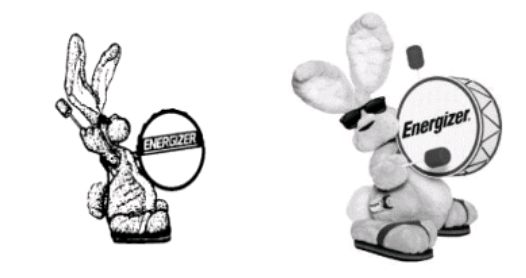Section 22 of the Canadian Trademarks Act, depreciation of a registered trademark's goodwill, is a potentially powerful yet generally under-utilized weapon for dealing with damaging comparative advertising campaigns. In the recent summary judgment decision of Energizer Brands, LLC v The Gillette Company, 2018 FC 1003, where Energizer sued Duracell for its use of Energizer's registered trademarks and other terms, including "the bunny brand" and "the next leading competitive brand", the Federal Court has provided some guidance as to the scope of this claim, as well as related remedies available under the Competition Act.
Comparative Advertising in Canada
Comparative advertising involves the direct comparison of one company's product or brand to a competitor's product or brand. While comparative advertising per se is not prohibited in Canada, comparative claims may invite a number of complaints from the competitor. Some of the more common possible complaints include:
(i) false and misleading representations contrary to the Competition Act; and
(ii) making false or misleading claims contrary to subsection 7(a) of the Trademarks Act, making false claims in a material respect that are likely to mislead the public contrary to subsection 7(d) of the Trademarks Act, and depreciation of the goodwill attaching to a registered trademark contrary to section 22 to the Trademarks Act.
Claims under the Trademarks Act
Dilution-type claims to prevent comparative advertisements displaying a registered trademark are particularly complex due to the requirement that the advertising actually "use" the registered mark within the meaning of the Trademarks Act. In particular, display of a trademark in advertising may constitute "use" in connection with services, while "use" of a mark registered for goods requires that the trademark be marked on the goods or on the packaging for the goods or in some other manner that the trademark is associated with the goods at point of sale or transfer.
Therefore, if a trademark is registered in connection with goods only, the comparative use of the registered trademark in a competitor's advertising materials—as opposed to a display of the identical or confusing trademark directly on the competitor's packaging—may not constitute "use" under the Trademarks Act. Without such "use" of the identical or confusing trademark, a plaintiff cannot establish depreciation of goodwill under the Trademarks Act.
On the other hand, to succeed in a claim of depreciation of goodwill, the plaintiff need only show that the defendant made use of a trademark that is sufficiently similar to the plaintiff's registered trademark to evoke in a relevant universe of consumers a mental association of the two trademarks that is likely to depreciate the value of the goodwill attaching to the plaintiff's trademark.
Indeed, while the Supreme Court of Canada in the 2006 decision of Veuve Clicquot Ponsardin v Boutiques Cliquot Ltee, 2006 SCC 23, held that section 22 of the Trademarks Act applies even though the use of the trademark at issue may differ from the trademark as registered, the scope of this section has been relatively untested.
Energizer Brands, LLC v The Gillette Company
However, in a recent motion for summary judgment brought by the Defendants ("Duracell") to strike certain allegations from the Plaintiffs' claim, the Federal Court has provided some clarity.
In this case, Duracell had made various comparative claims and used Energizer's registered trademarks ENERGIZER and ENERGIZER MAX, as well as the terms "the next leading competitive brand" and "the bunny brand" on labels of its Duracell batteries.
Energizer sued Duracell for its use of Energizer's registered ENERGIZER and ENERGIZER MAX trademarks as well as the terms "the next leading competitive brand" and "the bunny brand" under subsection 22(1) and subsections 7(a) and 7(d) of the Trademarks Act. In relation to Duracell's reference to "the bunny brand", Energizer relied upon the following registered ENERGIZER BUNNY design trademarks:

Although Duracell did not use the Plaintiff's registered ENERGIZER BUNNY design trademarks on its packaging, the Court refused to strike Energizer's claim on the summary judgment motion and held that Duracell's use of the term "the bunny brand" on packages of Duracell's batteries might offend section 22 of the Trademarks Act. In particular, the Court found that "the somewhat-hurried consumer seeing the words 'the bunny brand' in relation to batteries, both AA and of the hearing aid type, would make both a link with and a connection to the ENERGIZER Bunny Trade-marks".
Likewise, the Court held that the term "the bunny brand" was "nourished by sufficient trade-mark or 'intellectual property' interest to benefit from the protection and application" of both subsections 7(a) and 7(d) of the Trademarks Act, and therefore this pleading was not struck.
However, the Court held that Duracell's use of the term "the next leading competitive brand" did not offend the Trademarks Act because no mental association would be made between Energizer's marks and the phrase "the next leading competitive brand" used on Duracell's batteries. Such an association, the Court said, "would involve imputing to the somewhat-hurried consumer details of market share in respect of which expert third-party evidence was filed in this Court". These pleadings were therefore struck from Energizer's claim as the Court held that resolving this aspect of the case by way of summary judgment was appropriate as it would reduce the cost of trial preparation.
Claims under the Competition Act
The Court also found that Energizer does not have the right to an accounting for profits under subsection 52(1) of the Competition Act, because the remedies for a breach of this section are limited to the plaintiff's actual loss/damages and do not permit a party to seek an accounting of the defendant's profits.
Conclusion
The Court's decision confirms that the scope of section 22 of the Trademarks Act extends beyond a company's identical registered trademark and may provide an effective weapon against damaging comparative advertising campaigns which make use of any mark or phrase that consumers would associate with a plaintiff's registered trademark. The remaining issues as to whether Duracell's comparative advertising claims violate the Trademarks Act and the Competition Act will be heard by the Trial Judge. Although the matter was originally set down for a ten-day trial commencing December 3, 2018, this has now been rescheduled for a later date. We will report further once the trial in this case has been decided.
If you have any questions about the above, please do not hesitate to contact a member of our firm's Trademarks or Marketing and Advertising Groups.
The preceding is intended as a timely update on Canadian intellectual property and technology law. The content is informational only and does not constitute legal or professional advice. To obtain such advice, please communicate with our offices directly.
